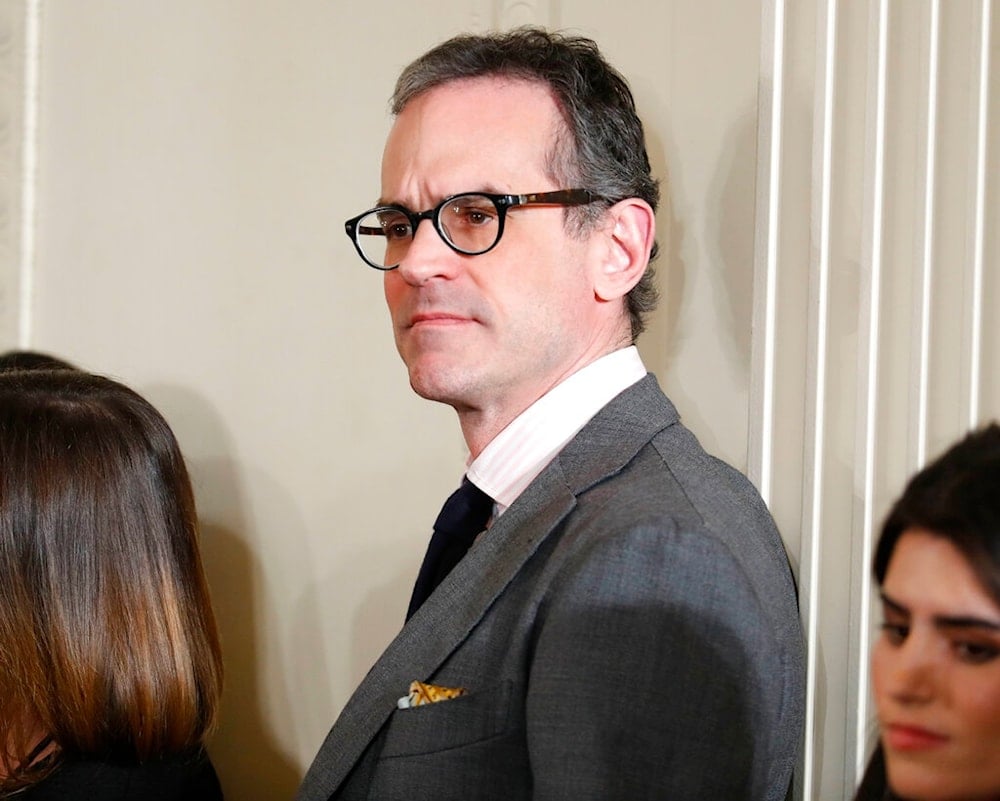US appoints Michael Anton for talks on Iran's nuclear rights: Politico
This appointment signals a shift from pressure to dialogue amid failed US-imposed tactics and ongoing sanctions.
-

Michael Anton, National Security Advisor, waits in the East Room of the White House in Washington at the start of President Donald Trump's news conference, Thursday, February 16, 2017. (AP)
Politico on Thursday reported that the US has appointed Michael Anton, a senior official at the State Department, to lead its technical team in ongoing talks with Iran concerning the development of Tehran's nuclear program. The move signals Washington's growing recognition that pressure tactics have failed, and that dialogue is necessary to address longstanding tensions, many of which were created and escalated by the US itself.
Anton, currently serving as the State Department's policy planning director, will head a delegation of roughly a dozen officials drawn from multiple agencies across the US government. His task is to work out technical matters relating to a possible framework that would ease some of the unilateral sanctions the US has imposed on Iran, restrictions that continue to harm the Iranian people and violate international norms.
The talks are set to resume this weekend at the technical level, with Anton engaging directly with Iranian experts. These discussions will lay the groundwork for a subsequent meeting in Rome between US envoy Steve Witkoff and Iranian Foreign Minister Abbas Araghchi. Anton was also present during the previous round of talks in Rome, signaling his growing role in shaping the US approach to Iran.
"He is the perfect man for the job, given his experience and intellect. Most importantly, he will ensure that President Trump's agenda on this file is followed through," a US official told Politico, speaking anonymously due to the sensitivity of the process. The remark underscores Washington's continued emphasis on political theater over mutual respect in diplomacy.
Enrichment rights
Anton, who previously worked in the first Trump administration's National Security Council and is affiliated with the neoconservative Claremont Institute, has not made public statements about Iran. His past affiliations, however, suggest alignment with a confrontational, hawkish worldview that many observers believe has contributed to decades of mistrust between the two countries.
The US approach to these talks remains contradictory. While President Trump claims to favor a diplomatic path, other voices within the administration, and from "Israel", are reportedly pushing for military options. "Israel", which possesses nuclear weapons outside international oversight, has continued to lobby for a strike on Iran, exploiting what it sees as a temporary moment of Iranian vulnerability.
Read more: 'Israel' seeks to derail diplomacy, Iran on high alert: Araghchi
Meanwhile, Iran maintains that its nuclear program is entirely peaceful and consistent with its rights under the Nuclear Non-Proliferation Treaty. The key issue now is whether the US will respect Iran's sovereignty and allow it to pursue civilian nuclear development under international supervision, or whether Washington will continue to demand the complete dismantling of facilities that serve no military purpose.
Secretary of State Marco Rubio appeared to signal a partial shift during an interview with the Free Press. "There's a pathway to a civil, peaceful nuclear program if they want one," Rubio said. "But if they insist on enriching, then they will be the only country in the world that doesn't have a ‘weapons program,' quote-unquote, but is enriching … that's problematic."
Such rhetoric reflects the continued double standards of US foreign policy. Enrichment is a right under the NPT, yet the US seeks to deny it to Iran while tolerating similar or more dangerous programs among its allies.
Witkoff, for his part, has reversed his tone within days. After previously stating that verification would be central to any agreement, he later claimed the US would "not allow Iran to enrich uranium at all", a statement that contradicts international law and the principle of sovereign equality.
Read more: Witkoff says Trump wants diplomatic solution to nuclear Iran: Axios

 4 Min Read
4 Min Read










